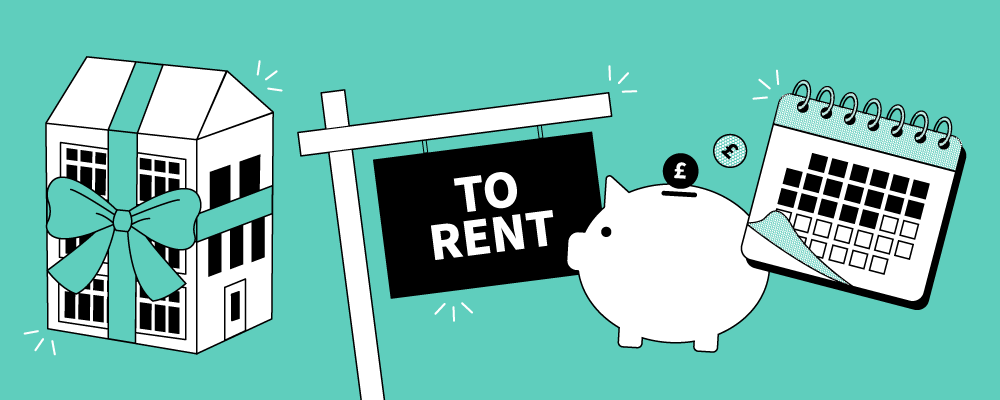
Buying a new build home is an exciting milestone, but it also comes with unique questions and considerations. Whether you’re buying your first new build home or moving up the property ladder, it’s important to understand exactly what you’re getting, what you’re paying for and how the process works.
Our comprehensive guide outlines what to ask when buying a new build home to help you stay informed throughout the process. Read on to learn more.
1. What’s included in the price?
Get a detailed list of everything included in your purchase price. This covers appliances, like ovens, hobs and washing machines, flooring throughout the property, and fixtures like light fittings, bathroom suites and kitchen units. If they’re not included in the initial price, you may be able to purchase them separately if you wish to.
For outdoor spaces, check whether gardens will be landscaped with grass, plants and pathways, or if you’ll receive an empty plot to design yourself. Confirm parking arrangements, like a driveway or designated parking space, and find out where they are located. This is particularly important for flats where parking might be in a separate area.
2. Are there any financial schemes available to help you buy?
Alongside Government schemes like Lifetime ISAs and the First Homes Scheme, many developers offer assistance schemes to help you make your move into a brand-new home. These can significantly reduce the upfront costs or monthly payments for your new home, so ask if your developer has any potential schemes suited to your circumstances. Don’t forget to check for limited-time offers or seasonal promotions.
Barratt London provides several schemes to help you purchase your new home. With Deposit Boost, we could contribute an additional 5% to your deposit if you already have 5% of the property purchase price saved. This could help you access better mortgage rates and lower monthly payments.
Alternatively, our Key Worker Deposit Contribution offers additional support when buying a brand‑new home, by providing a contribution towards your deposit as a thank you for the vital work you do. This scheme gives you £1,000 towards your deposit for every £20,000 of the purchase price - up to £40,000, helping make your new home more affordable and reducing the amount you need to save upfront.
3. Is this new build property leasehold or freehold?
Understanding your ownership type is crucial for long-term planning and costs. There are two main types: leasehold and freehold.
-
Leasehold means you own the property for a set period, typically 90-999 years, but not the land beneath it.
-
Freehold means you own both the property and the land until you choose to sell it.
Most new build flats in the UK are available as leasehold, though occasionally you may have the option to buy a share of the freehold. If your property is leasehold, ask what the length of the lease is and if there are any ground rent charges. Clarify who owns the property and who is responsible for maintaining shared areas like hallways, lifts and gardens.
For a more detailed explanation of the differences between leasehold and freehold properties, read our guide.
4. Are there any restrictive covenants?
Restrictive covenants are rules that limit what changes you can make to your property. They’re common on new developments to maintain a consistent appearance across the neighbourhood.
Typical restrictions might prevent large extensions, major external changes, like satellite dishes or solar panels or keeping certain pets. Understanding these upfront prevents future disappointment when you want to modify your home.
5. Is there a management company?
Many new developments have management companies that handle communal areas and fix any initial problems after you move in. Find out who this company is, what services they provide and how to contact them.
The management company typically handles maintenance of shared spaces, initial property defects (during the warranty period) and ongoing estate management. Knowing their role helps you understand who to approach for different issues.
6. Are there any service charges?
Request a detailed breakdown of annual service charges and what they cover. These might include maintenance of communal gardens, cleaning of shared areas, building insurance, or upkeep of amenities like gyms or play areas.
Ask how these charges are calculated, when they’re reviewed or increased and what your rights are if you disagree with any charges. Understanding these ongoing costs is essential for budgeting.
7. What’s the construction timeline and completion date?
Get realistic timelines for when your home will be finished and ready for you to move in. Ask about potential delays that can affect completion dates, like the weather, material shortages or planning issues.
Request regular progress updates and find out when you can visit the site to see your property taking shape. Also, don’t forget to confirm when you’ll get your completion date and keys.
8. Can I use my own conveyancer?
Some developers prefer you to use their recommended solicitors, while others are happy for you to choose your own. If you want to use your own conveyancer, make sure they have experience with new build purchases, as the process differs from buying existing properties. Don’t forget to check whether using your own solicitor affects any purchase incentives or timelines.
Browse our new homes for sale in London and explore our homebuying offers to help you move. Call our Sales Advisers today to learn more.

